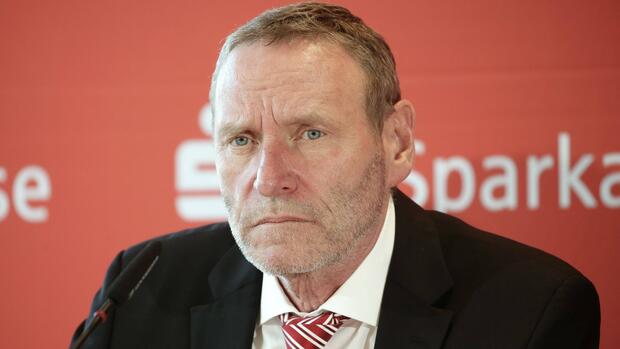The savings bank president warns of the consequences of high energy prices: Profits are likely to decline for many companies and some of the companies could relocate from Germany.
(Photo: imago/Reiner Zensen)
Frankfurt The German savings banks are warning that large parts of the German middle class will earn significantly less and that companies will increasingly relocate. Two thirds of the 353 savings banks expect that declines in profits among their corporate customers will “significantly impact the earnings situation,” said savings bank president Helmut Schleweis on Tuesday. This was the result of a survey of medium-sized business experts in the financial institutions.
“The bottom line is that our forecast for profit development is pointing downwards for most sectors,” explained the head of the German Savings Banks and Giro Association (DSGV). He cited the increased energy costs as the main reason for this, because the price of energy is a substantial factor for future competitiveness.
Schleweis therefore fears that more and more companies will leave Germany. “The danger that companies will migrate to countries where energy is cheaper is acute.” It is a “creeping process”, the extent of which can perhaps only be estimated late.
Many companies already have production facilities abroad
The hurdles for at least partial migration are significantly lower for many companies than many people think: “The larger medium-sized companies are already closely linked to foreign markets and often have production facilities there that can be expanded quickly and easily,” warned the DSGV. President.
On Monday, figures from the EU Commission made it clear that Germany has fallen sharply behind in terms of growth within Europe. According to the EU Commission’s new growth forecast, the German economy will shrink by 0.4 percent this year and will only recover slowly next year with growth of 1.1 percent. Across Europe, the EU expects a slight economic increase of 0.8 percent in 2023.
Germany is therefore at the bottom of the list in Europe: no other major EU nation has to expect negative growth in 2023. Some German economic institutes fear an even greater economic downturn. The Leibniz Institute for Economic Research (RWI) in Essen, for example, predicts a decrease in gross domestic product (GDP) of 0.6 percent. The Kiel Institute for the World Economy (IfW) expects minus 0.5 percent.
>> Read here: New lending business at East German savings banks is collapsing
On average, the savings banks’ corporate customers managed to make a profit in 2022, said Schleweis. “Things are now getting tight for some sectors: in particular, the chemical industry, the transport industry and the energy-intensive segments of the manufacturing industry can hardly cope with further energy price increases.”
However, the savings bank experts do not expect a sharp increase in insolvencies. Only two percent of them expect that their corporate customers would get into existential difficulties. The average equity ratio of German medium-sized companies is 38 percent.
Lending to businesses is plummeting this year
According to Schleweis, the high cost increases also lead to a decrease in the willingness to invest. The savings banks, which are market leaders in business with corporate customers with a share of 40 percent, are already clearly feeling this.
Loan commitments to companies and the self-employed in the first half of 2023 are more than a third below the previous year’s figure. There is a significant decline, especially in commercial residential real estate financing, with lending falling by more than half.
Schleweis called on politicians to pick up the pace when it comes to energy, digitalization and an expanded workforce through education and immigration. With regard to energy prices, he advocated using energy available for a limited time and creating a faster transition to renewable energies.
The DSGV boss rejects an industrial electricity price, i.e. a reduced electricity tariff for German industry. “Instead of establishing new subsidies such as an industrial electricity price, cuts in electricity taxes and a reform of network fees are much faster and more effective. Not only a few large companies benefit from this, but also medium-sized companies,” said Schleweis. The traffic light coalition is currently exploring whether it can find a compromise to relieve the industry of high electricity prices.
More: Mechanical engineering expects a longer lull in production
